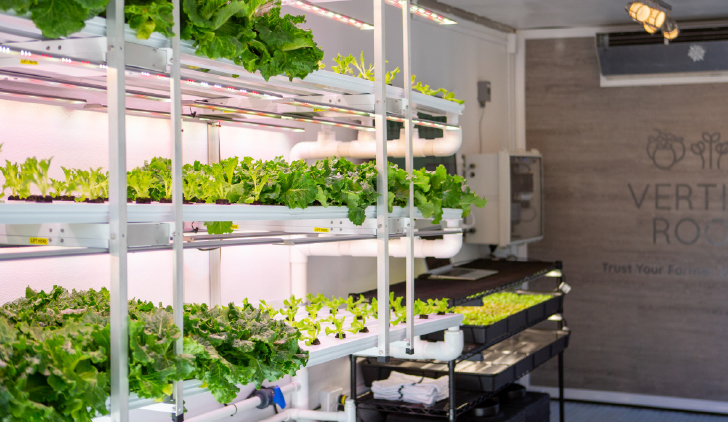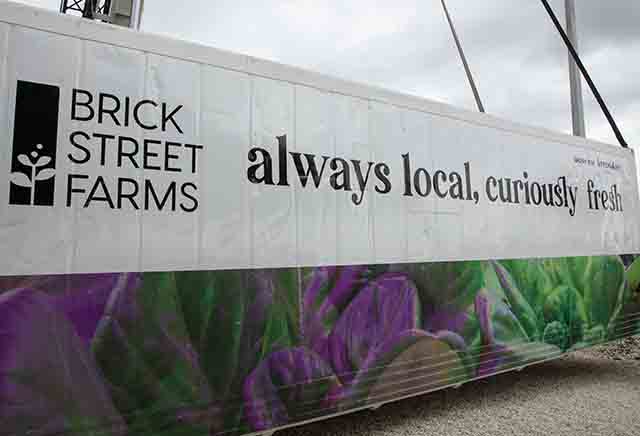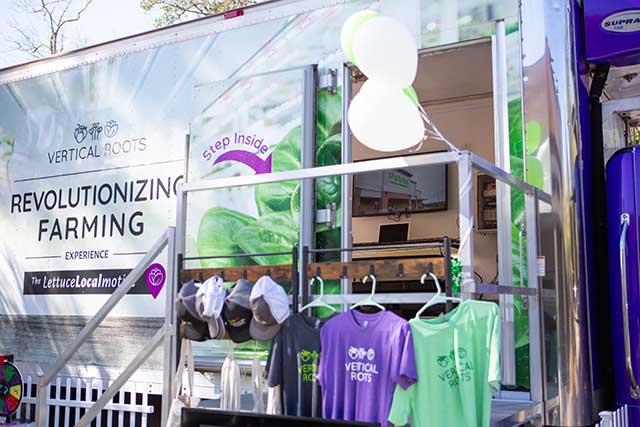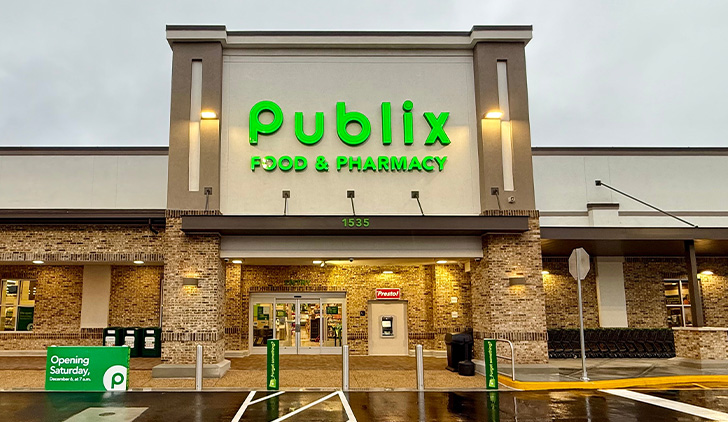
Cut off one head, and you get some tasty lettuce with minimal environmental impact.
OK, so maybe hydroponics isn’t a mythical beast or a group of Marvel villains. That’s Hydra. We’re talking about a different — and kinder — monster. With a goal of sustainability, hydroponic farming in refurbished shipping containers is becoming big business. And for good reasons.
- Containers can be placed anywhere! From parking lots to reinforced rooftops, any unused space can become a farm.
- Plants can be grown closer to where they’re sold, which means they’re allowed more growing time to develop more nutrients. And local farms reduce the environmental impact of long-distance shipping.
- Plants are grown without soil, chemical fertilizers or pesticides.
- Food safety is improved because the products are grown, harvested and packaged in a sterile environment.
- Water is recycled and filtered, using 98% less water than traditional farming techniques.
- Each container produces 3,400 plants per harvest and is harvested 15 times per year.
Growing local
This year, Publix is collaborating with two local hydroponic farms to pilot innovative new programs in Florida and South Carolina.
Brick Street Farms
St. Petersburg, Florida

We’re growing lettuce in an on-site garden at GreenWise Market in Lakeland, Florida. The upcycled shipping container was installed in early March, and customers can look through a window to see the lettuce being grown in the closed, sterile environment. The container uses 15 gallons of water a day to grow 720 heads of certified non-GMO, pesticide-free lettuce per week. And with five grow zones, harvests take place every week.
All of the lettuce grown on-site is sold in the Lakeland GreenWise Market, and produce and herbs grown at Brick Street Farm’s facilities are being sold at Publix locations throughout the Tampa Bay area.
Vertical Roots
Charleston, South Carolina

All aboard the Lettuce LocalMotive! This box truck is taking gardening on the go, with stops at Publix and GreenWise Market locations in South Carolina. Tour dates started in February but were put on pause while stay-at-home orders were in effect. New dates will be announced when it’s safe to resume.
The focus is on education, so you can stop in to learn how their garden grows. Vertical Roots farmers will guide visitors through a scaled version of an actual Vertical Roots container farm. They’ll talk about how hydroponic farms work, what makes the veggies so delicious and why hydroponically grown produce improves food safety. You can also sample products grown at their hydroponic farms.
Everything grown on the truck is donated, and the goal is zero waste. If it can’t be donated to people, they donate for animal use.
Into the future
These pilot programs will last all year, and our hope is to add more collaborators and locations in 2021 and beyond. It’s a vision firmly grounded in Mr. George’s spirit of innovation, and it’s one we can all get behind — not just as company owners, but as citizens of our shared planet.
Hydro what?
Hydroponics is the process of growing plants without soil and with minimal water. The concept has been around for more than 2,000 years, but the science really took off in the 20th century. It’s expected to grow (pun intended) even more in the future. The global hydroponics market could reach $700 million by 2023, and NASA scientists are experimenting with hydroponics as a way to grow fresh vegetables in space ships or colonies on the moon or Mars.
And in case you’re wondering, the name for the process was invented in the 1930s by combining the Greek words hydro (water) and Ponos (labor).
Sources: dictionary.com; encyclopedia.com; nasa.gov; researchandmarkets.com

Watch as we installed the hydroponic container at GreenWise Market in Lakeland, Florida.



